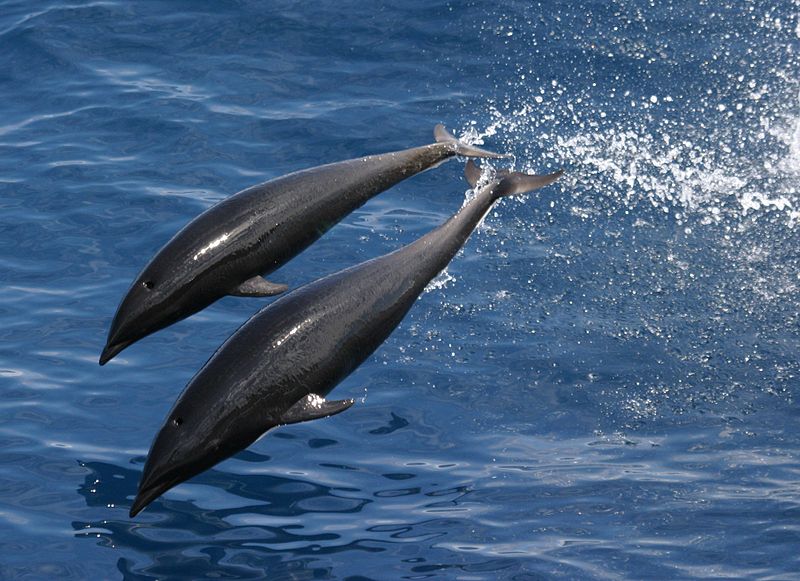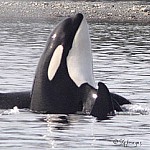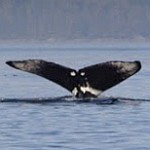The Northern Right Whale dolphin, Lissodelphis borealis, is a small and slender species of marine mammal. These dolphins are found in the northern Pacific, forming what is known as an anti-tropical species pair with its close relative, the Southern Right-Whale dolphin. These species are so named because they lack a dorsal fin, just like Right whales. Whilst thousands of Northern Right Whale dolphins were taken on an annual basis in the North Pacific drift-net fishery right up until its closure in the 1990s, their population is thought to be quite strong, listed as least concern in the IUCN Red List of Threatened Species.
The Northern Right Whale dolphin has a streamlined body, with a sloping forehead and a short beak and well-defined mouth, with the lower jaw protruding beyond the upper jaw. It has small flippers, a small triangular fluke, and no dorsal fin. The body is mostly black, with a lighter underside with a white patch on the chin. Adults tend to be around 2-3 m (7-10 ft) in length, weighing 60-100 kg (130-220 lb). Northern Right Whale dolphins are strong divers, feeding primarily on lanternfish and squid, and have been known to hold their breath for up to 6.5 minutes, reaching depths up to 200m.
This dolphin generally travels in pods of 100-200 individuals, and is a very social species, often seen travelling in groups of up to 3000 in the company of Pacific White-Sided dolphins, Risso’s dolphins, and many other species. While travelling, they are known to reach speeds of up to 40 km/h across the open ocean, regularly making low leaps, sometimes up to 7 m in length. They have been known to approach boats and partake in bow-riding behaviour, and occasionally has been seen doing acrobatics such as breaching, belly-flopping and lobtailing.
Northern Right Whale Dolphin – Lissodelphis borealis specifics
Length:
Up to 3 metres (10 ft)
Weight:
Up to 60 kg (135 lb)
Colour:
Black, with a light underside
Features:
Streamlined body with a sloping forehead
Lacking a dorsal fin
Pointed flukes and flippers




